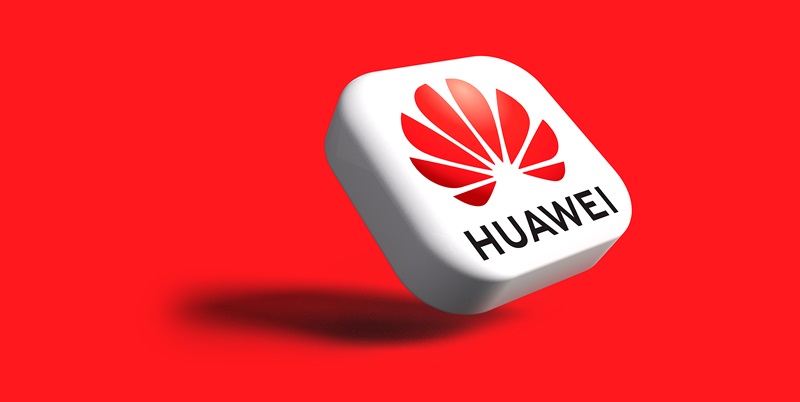Huawei is continuing its efforts to mitigate the impact of US sanctions on its capabilities and market reach, particularly in developing AI technology domestically. Despite restrictive trade sanctions that have barred Nvidia from selling its most advanced chips like the H100 to China, Huawei is reportedly testing a new AI accelerator, the Ascend 910C, with significant Chinese tech firms such as ByteDance, Baidu, and China Mobile. This new chip aims to match the performance of Nvidia’s H100, potentially reviving China’s AI aspirations restrained by US policy.
Technological Supremacy in the US-China Context
Attempting to Match Nvidia’s Advanced Chips
At the heart of Huawei’s efforts is the Ascend 910C, an AI accelerator designed to compete directly with Nvidia’s H100, regarded as a top performer in the market. Analysts note that the Ascend 910C could address the performance deficits posed by Nvidia’s H100, which is the best available option for Chinese companies under the current trade restrictions. The H100, though a robust chip, suffers from limited capabilities due to these trade sanctions, putting Chinese companies at a significant technological disadvantage. The introduction of the Ascend 910C is expected to alleviate some of these issues, thereby reducing dependence on Nvidia’s embargoed technology.
Huawei’s move to test the Ascend 910C with major Chinese tech firms like ByteDance, Baidu, and China Mobile signifies a concerted effort to build a self-sufficient tech ecosystem. This is not just a matter of matching Nvidia’s technology but also a strategic move to safeguard the technological ambitions of China’s AI industry. By fostering domestic innovation, Huawei is aiming to sidestep the hurdles imposed by US sanctions and bolster its own technological capabilities. The success of the Ascend 910C could potentially recalibrate the competitive landscape, challenging US strategic objectives and solidifying China’s position in the global tech arena.
Reducing Dependence on Foreign Technology
Another essential element of Huawei’s strategy is its adaptation to circumvent US technological embargoes. The company has previously shown its ability to leverage domestic manufacturing to produce state-of-the-art devices, exemplified by the Mate 60 Pro smartphone featuring the Kirin 9000s processor. Similarly, it appears Huawei is employing innovative methods to produce the Ascend 910C within China. This suggests the possibility of tweaking existing manufacturing capabilities to facilitate the production of more advanced chips, capable of competing with those of foreign companies that are currently out of reach due to sanctions.
This approach is part of a broader trend among Chinese firms to develop home-grown technologies to sidestep Western sanctions. Many Chinese tech giants are increasingly keen on developing their own large language models and AI systems without relying on restricted foreign technology. By investing heavily in R&D and domestic production, these firms are laying the groundwork for a self-sufficient tech industry. Such efforts underline the Chinese tech sector’s resilience and determination to overcome external constraints and establish technological independence.
Strategic Adaptations and Future Prospects
Huawei’s Role in the Chinese Tech Ecosystem
The drive to foster domestic innovation extends beyond Huawei to other major players in the Chinese tech industry. The broader industrial trend highlights the imperative for technological autonomy in China and sheds light on how this autonomy is being achieved through strategic adaptations and innovations. Summaries of the latest industry trends reveal that while US sanctions have indeed slowed China’s technological progress, initiatives like Huawei’s Ascend 910C are indicative of a resilient and adaptive response aimed at creating an independent tech ecosystem. The implications of these advancements have the potential to reconfigure the competitive dynamics in the tech industry.
Despite the ongoing challenges posed by US sanctions, the Chinese tech sector remains resilient and innovative. The Ascend 910C represents more than just a new chip; it symbolizes the concerted efforts of Chinese companies to push forward their technological capabilities. If these technological innovations prove successful, they will not only help Chinese firms maintain their competitive edge but also reduce their dependence on foreign technology. As a result, the tech landscape could witness a significant shift, challenging the strategic objectives of US policies aimed at curbing China’s technological ambitions.
The Road Ahead for China’s AI Ambitions
Huawei continues to work on lessening the effects of US sanctions that have hampered its technical capabilities and market reach, particularly in developing artificial intelligence domestically. U.S. trade restrictions have prevented Nvidia from selling its advanced H100 chips to China, which has driven Huawei to step up its efforts in the AI space. Reports suggest Huawei is currently testing a new AI accelerator, the Ascend 910C, with several major Chinese technology companies, including ByteDance, Baidu, and China Mobile.
The Ascend 910C is designed to rival the performance of Nvidia’s H100, potentially reigniting China’s ambitions in artificial intelligence that have been constrained by U.S. policies. With these homegrown innovations, Huawei aims to mitigate the technological bottleneck created by the sanctions. This move not only reflects Huawei’s resilience but also underlines China’s broader strategy to become self-reliant in critical technological sectors. As Huawei tests its new chip, the company—and by extension, China—hopes to recover some of the lost ground in the competitive field of AI technology.

